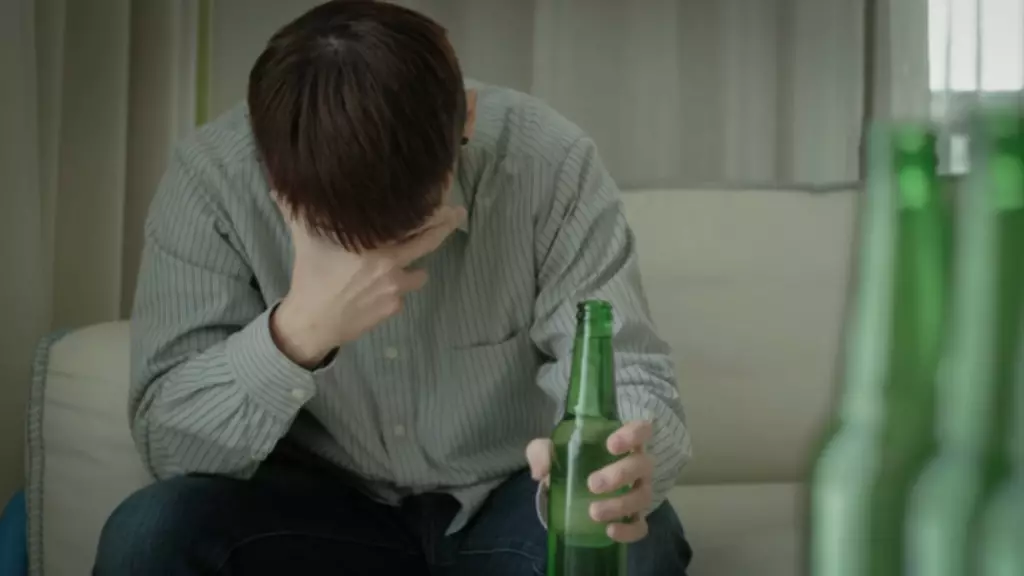Content
Behavioral treatments are aimed at changing drinking behavior through counseling. They are led by health professionals and supported by studies showing they can be beneficial. Personal stories abound of people never touching alcohol again after going to AA or receiving certain treatments. For some, alcoholism can be overcome, although whether it is cured is debatable. The other issue is that those who drink a lot are not necessarily alcoholics, so they may not undergo alcohol withdrawal. In addition, some people may not experience severe cravings and so on.

The Last Glass, the account of his miraculous recovery, came out 2008. Its publication turned him into something of an evangelist for Baclofen. Blaise, who is now 46 and an entrepreneur in Paris, says that for decades, only booze could ease his “pathological anxiety”. In his late 30s, at the height of his addiction, he would down between one and two liters of strong beer, followed by a bottle of wine and servings of vodka or whiskey. Sometimes he would wake up in the street or in hospital after a blackout. Group therapy, led by a therapist, can give you the benefits of therapy along with the support of other members.
Rehab for Women Near Temecula, California – New Directions for Women
Although your participation in the process can be vitally important, you also need to take care of yourself. Programs such as Al-Anon, which is a support group for friends and family members of alcoholics, may be beneficial as you help support your loved one on the road to recovery. Overcoming an addiction to alcohol can be a long and bumpy road. If you’re ready to stop drinking and willing to get the support you need, you can recover from alcoholism and alcohol abuse—no matter how heavy your drinking or how powerless you feel. And you don’t have to wait until you hit rock bottom; you can make a change at any time. Whether you want to quit drinking altogether or cut down to healthier levels, these guidelines can help you get started on the road to recovery today.
You can also benefit from the shared experiences of the group members and learn what others have done to stay sober. Build a sober social network – If your previous social life revolved around alcohol, you may need to make some new connections. It’s important to have sober friends who will support your recovery. Try taking a class, joining a church or a civic group, volunteering, or attending events in your community. Make a note about how you feel physically and mentally on these days—recognizing the benefits may help you to cut down for good.
When Is It Time for Treatment?
The sooner you recognize there may be a problem and talk to your healthcare provider, the better your recovery chances. If you drink more alcohol than that, consider cutting back or quitting. Talk to your healthcare provider about proven strategies. It’s a disease of brain function and requires medical and psychological treatments to control it. Consider staging a family meeting or an intervention, but don’t put yourself in a dangerous situation. Offer your support along each step of the recovery journey.
- Each drinking relapse is an opportunity to learn and recommit to sobriety, so you’ll be less likely to relapse in the future.
- Alcoholics Anonymous (AA) is the most widely available and well-known option for people with alcohol addiction, but there are other options for people who do not like the 12-step model of addiction and recovery.
- Here’s some information to help you get ready for your appointment, and what to expect from your health care provider or mental health provider.
- When seeking professional help, it is important that you feel respected and understood and that you have a feeling of trust that this person, group, or organization can help you.
So, you should be careful not to take any narcotics while you are taking naltrexone. Do not take any cough medicine with codeine in it while you are taking naltrexone. Naltrexone can cause or worsen withdrawal symptoms in people who take narcotics. You must stop taking all narcotics 7 to 10 days before you start taking naltrexone. When you use alcohol and narcotics, parts of your brain make you feel pleasure and intoxication. When these areas are blocked, you feel less need to drink alcohol.
Management and Treatment
Mutual-support groups provide peer support for stopping or reducing drinking. Group meetings are available in most communities at low or no cost, and at convenient times and locations—including an increasing presence online. This means they can be especially helpful to individuals at risk for relapse to drinking. Combined with medications and behavioral treatment provided by health care professionals, mutual-support groups can offer a valuable added layer of support. While getting sober is an important first step, it is only the beginning of your recovery from alcohol addiction or heavy drinking.
Trying to tough it out on your own can be like trying to cure appendicitis with cheerful thoughts. Alcohol use disorder is what doctors call it when you can’t control how much you drink and have trouble with your emotions when you’re not drinking. Some people may think the only way to deal with it is with willpower, as if it’s a problem they have to work through all on their own. We’re often asked whether there’s a cure for alcoholism. Often this is by a concerned partner or friend, and sometimes it’s by someone who suffers from the disease. Like many diseases, however, the answer lies between yes and no.
Online Therapy: Is it Right for You?
Here’s some information to help you get ready for your appointment, and what to expect from your health care provider or mental health provider. Although there isn’t a cure for alcohol addiction, there are many non-pharmacological and psychosocial resources to help people reduce the severity of their addiction, recover, and sustain remission of symptoms. Within the current framework of addiction can alcoholism be cured as a chronic condition, there is no cure for addiction that eliminates the chance for relapse. Instead, alcohol addiction can cycle between periods of remission and recurrence similar to other chronic health conditions. Like with all drugs, long-term alcohol abuse creates changes in the brain’s biochemistry. An alternative reason might be that they’ve heard claims like this before.

She had hallucinations, paced her bedroom endlessly, and found herself talking to saints and dead scholars. This was 2008, and while the protocol was relatively new, Saint-André was comforted by Ameisen’s assurance that Baclofen’s side-effects were “as harmful as drinking a glass of water”. When Saint-André read about Baclofen, she decided to try the drug “as an adventure” in order to give up smoking. At the time she was chain-smoking three packs a day and had tried to quit many times without success. She now spends her time spreading the word and counseling people on her website’s forum. A growing number of her readers are interested in Baclofen for other addictive behaviors, bulimia and gambling among them (a small 2007 trial on seven patients showed that Baclofen reduced binge eating frequency).
